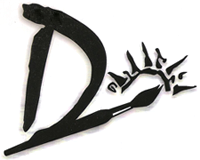Author David Epstein debates the 10,000 hour rule in his book The Sports Gene.
He says in a recent CBC interview the study was based on 30 violinists who were already brilliant at what they do.
It would be like taking NBA centers and saying they are who they are because of practice, “obscuring individual differences.” He also believes a person has a group of traits( sweep of genes) rather than one gene that defines talent.
A myth (with exercise genetics) he says, was defining talent as something that sort of “fell out of the sky”.
“Your genetic setup allows you to profit from training more rapidly than then the next guy” in other words, trainability is the most important kind of talent.”
He mentions elites have a specific kind of ‘perceptual skill’ assisting them to excel.
The 10,000 hour study was discussed in Scientific American MIND by Jennifer E. Drake and Ellen Winner,“Predicting Artistic Brilliance”. Is artistic brilliance something people are born with? Researchers discovered artistic children had strong observational skills, a deeper interest, and worked the hardest developing their skills.”
Arrian, classified as artistically gifted is discussed in the article. Thou at the age of three he wasn’t ahead of other children in representational skill, he was advanced in intensity, focus, and meticulous care. Many little ones will sit and draw a face, a circle with eyes, but Arrian went on to draw 400 smiling faces, in one sitting.
This kind of “Rage to Master”cannot be taught.” The article closes stating’ studies of children gifted not only in art, but in math, science, languages, chess and athletics “, “what predicts high achievement is the lucky combination of an ease of learning, an obsessive focus, and a deep motivation to pursue an activity”.
Epstein, Drake & Winner each mention observational skills as an important key.
In creative individuals, a unique cognitive function ~ a genetic variation increasing cognitive disinhibition is present, states the Scientific American article.
“ When unfiltered information reaches conscious awareness in the brains of people who are highly intelligent and can process this information without being overwhelmed it may lead to exceptional insights”.
Yet, there are performances that outshine others in an individual’s career. Regardless of athletic training programs mimicked with perfect conditions, the golden pro can fail to achieve what is expected. The experienced veteran artist has flops. When professional athletes or artists are questioned what went wrong in a poor performance, answers are often similar “I didn’t have it today”. “It” being a relative intangible.
Admiring an athlete, musician or painter, perhaps the point isn’t to identify the exact source of their talent. Conceivably it is enough to admire their remarkable work. Aside from research, talent still holds mystery, awe, and a little magic.
“So much of what we do as artists is a combination of personal experience and imagination, and how that all creeps into your work is not so linear.“~
Diana Krall
* The Sports Gene by David Epstein 2013
*Scientific American MIND issue “The Mad Science of Creativity” winter 2014

